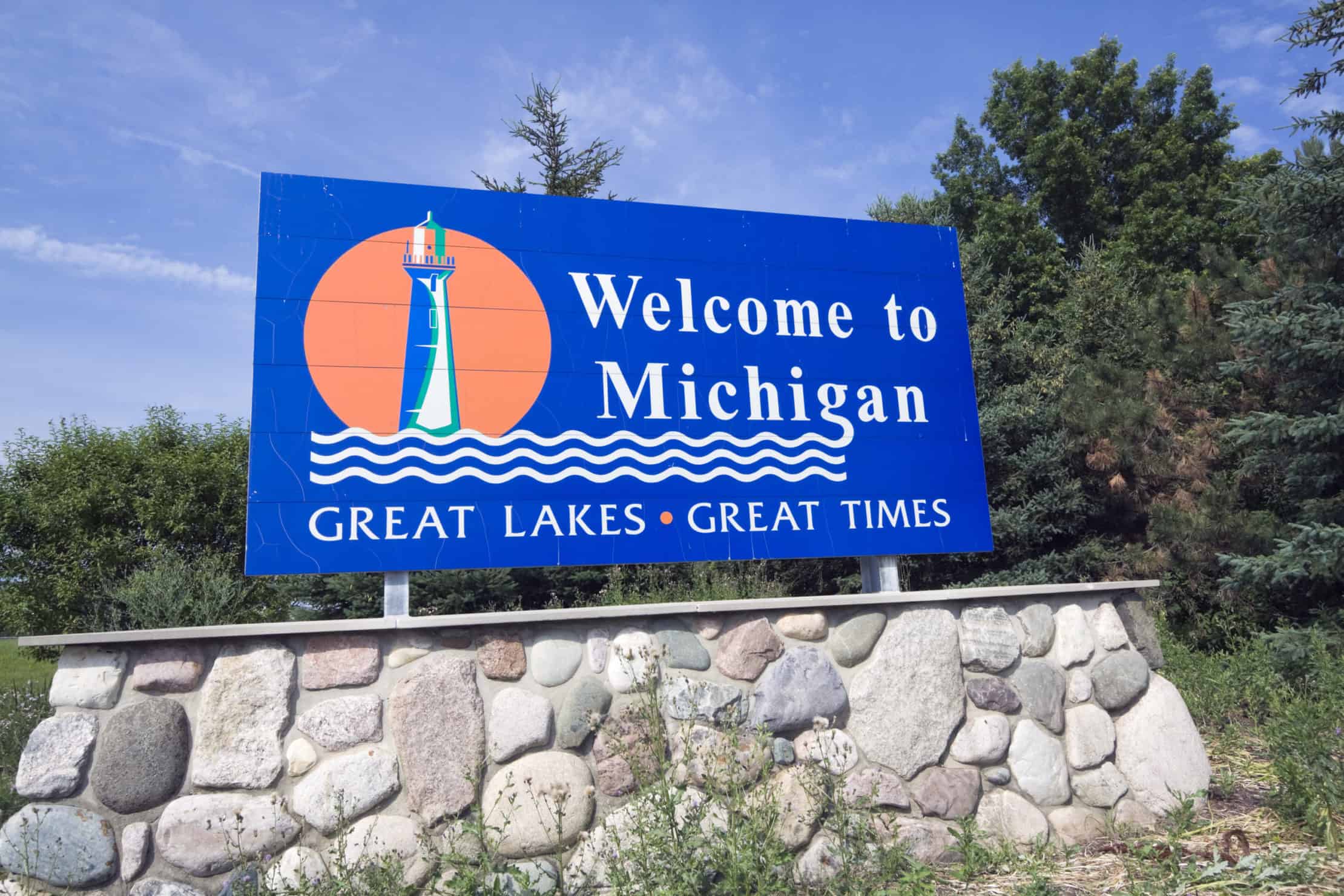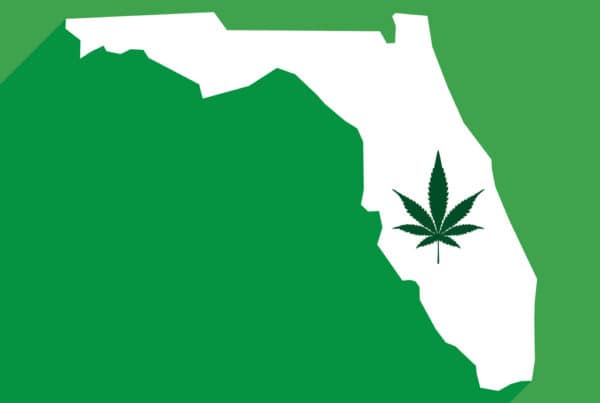TABLE OF CONTENTS
If you’re wondering how to apply for a medical cannabis card in Michigan, here’s your guide on the application process, qualifying conditions, purchasing and growing limits, and other rules.
Michigan voters passed the Compassionate Care Initiative in 2008, effectively legalizing the medical use of cannabis. Under the new law, qualifying patients with a valid medical cannabis card can purchase and use cannabis-infused products for medicinal purposes.
Benefits of a Medical Marijuana Card in Michigan
Michigan voters passed Proposal 1 in November 2018, which legalized adult-use sales and consumption in the state. The recreational law eliminates the 3 percent excise tax on medical cannabis purchases. Both recreational and medical patients must still pay the state’s 6 percent sales tax. Recreational patients must also pay an additional 10 percent excise tax. These small savings could provide long-term benefits for your medicinal purchases.
Obtaining a medical marijuana card in Michigan also offers numerous benefits. I
Qualifying Conditions for a Medical Marijuana Card
Michigan residents are able to obtain a physician’s letter of recommendation to use medical cannabis, if they have one or more of the following conditions:
- Cancer
- Glaucoma
- HIV/AIDS
- Hepatitis C
- Amyotrophic Lateral Sclerosis
- Crohn’s Disease
- Agitation of Alzheimer’s Disease
- Nail Patella
- Post-Traumatic Stress Disorder
- Obsessive-Compulsive Disorder
- Arthritis
- Rheumatoid Arthritis
- Spinal Cord Injury
- Colitis
- Inflammatory Bowel Disease
- Ulcerative Colitis
- Parkinson’s Disease
- Tourette’s Disease
- Autism
- Chronic Pain
- A chronic or debilitating disease or medical condition or its treatment that produces one or more of the following:
- Cachexia or Wasting Syndrome
- Severe and Chronic Pain
- Severe Nausea
- Seizures (including but not limited to those characteristic of epilepsy)
- Severe and Persistent Muscle Spasms (including but not limited to those characteristic of multiple sclerosis)
Medical Card Application Process in Michigan
The state of Michigan allows residents to submit their applications online or via mail.
Applications require you to obtain a physician’s recommendation to use medical marijuana. You can get your medical records from your primary physician and bring them to a separate medical cannabis clinic after setting up an appointment.
At the appointment, bring your medical records for the doctor to review. If you qualify, the doctor will fill out a letter of recommendation, which you must make a copy of and submit with your application packet.
If you’ll be completing your form online, you must set up an account with the state’s Department of Licensing and Regulatory Affairs (LARA).
After entering your email and password, you can click on “Registry Cards” on the state website and then click on “Create an Application.” You must submit a copy of your proof of residency, which could be a driver’s license or another government-issued document.
You can also select a caregiver to possess and grow plants for you. Once you’ve uploaded all the necessary documents, including the physician’s letter of recommendation, you will receive email notification of approval or denial.
If approved, you may use the email as a temporary substitute for a medical cannabis card. If you’ll be mailing in your application packet, send it to the following address:
Michigan Medical Marijuana Program
P.O. Box 30083
Lansing, MI 48909
Costs of Medical Marijuana Card in Michigan
Visiting a medical cannabis clinic can vary in price, but clinics usually charge about $200 per visit. Medical patients must pay a $40 application fee for a medical card valid for two years.
Applicants enrolled in Medicaid or another government assistance program may qualify to pay a $25 application fee. Patients are no longer charged for a criminal background check on a caregiver or if updating or replacing a medical card. Payment can be made with a check or money order payable to the State of Michigan – MMMP.
Buying and Growing Medical Marijuana
Patients with a valid medical card and a valid driver’s license can walk into a Michigan medical marijuana dispensary, also called provisioning center, to buy a range of cannabis-infused products.
Medical patients who are enrolled in the state registry program can purchase up to 2.5 ounces of usable marijuana or its equivalent in marijuana-infused products per day. Medical patients are also subject to a limit of 10 ounces per month.
Medical cannabis patients are also able to grow their own cannabis. Patients are able to possess up to 12 cannabis plants in an enclosed and locked facility.
If patients will be growing plants outdoors, the plants must not be “visible to the unaided eye from an adjacent property when viewed by an individual at ground level or from a permanent structure.”
Minors with Marijuana Michigan
Minors can apply to obtain a medical cannabis card in Michigan. Minors need a parent or legal guardian to complete the MMP Minor Application Packet.
Parents must also obtain two different physician signatures for the physician certification form and complete the Person Responsible Form in the application packet.
“
There are over 300,000 jobs in the cannabis industry. CTU trained me for one of them!

Makes $24.50 @ THC +
Caregivers in Michigan
Medical marijuana patients can assign a primary caregiver to assist them with obtaining and growing cannabis. Patients must include the caregiver’s information during their application or submit an Add or Change Caregiver form if they are an active medical cardholder. Caregivers can care for up to five patients.
Out-of-State Patients in Michigan
Out-of-state patients can get medical marijuana in Michigan if they have a valid medical card and state-issued photo ID. Under Michigan’s medical cannabis laws, a Michigan patient can also transfer a marijuana product to a visiting qualifying patient.
Michigan’s medical marijuana application process has gotten simpler and more affordable over the years. Its robust list of qualifying conditions makes it possible for a large number of patients to take advantage of medical cannabis products as an alternative or complementary treatment option. Once you’ve obtained your medical cannabis card, you’ll be able to enjoy all the benefits of the state’s growing medical cannabis market.

Fred Hernandez
Fred Hernandez is a highly accomplished and versatile writer, boasting an extensive background in the cannabis industry. With an in-depth understanding of various sectors including cultivators, processors, retailers, and brands, Fred's expertise spans across the entire cannabis landscape. As a prominent contributor to CTU, he consistently delivers insightful articles exploring the latest developments, news, and regulations shaping the cannabis industry. Whether it's delving into the intricacies of cannabis products, cannabis strain reviews, or providing comprehensive analyses of cannabis laws, or sharing expert insights on cannabis cultivation techniques, Fred's wealth of knowledge positions him as an invaluable writer and educator for all cannabis-related subjects.












 Jeff was involved in an accident where he endured a traumatic brain injury. He had a week-long stay in ICU where brain surgeons
Jeff was involved in an accident where he endured a traumatic brain injury. He had a week-long stay in ICU where brain surgeons  100% risk free money back guarantee within 48 hours after purchase if student has not completed any of the courses or exams.
100% risk free money back guarantee within 48 hours after purchase if student has not completed any of the courses or exams.